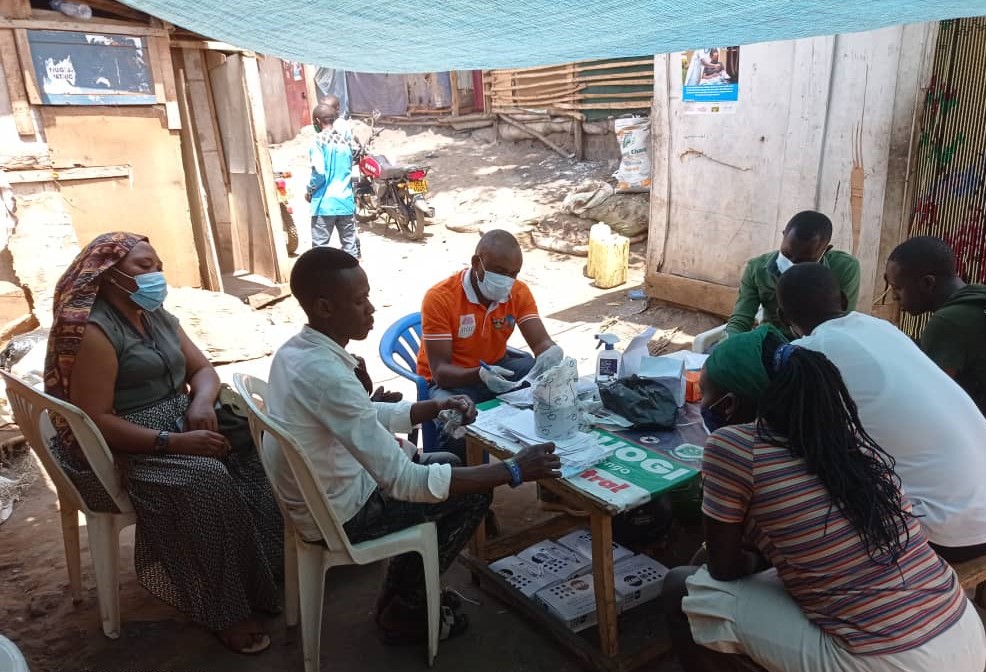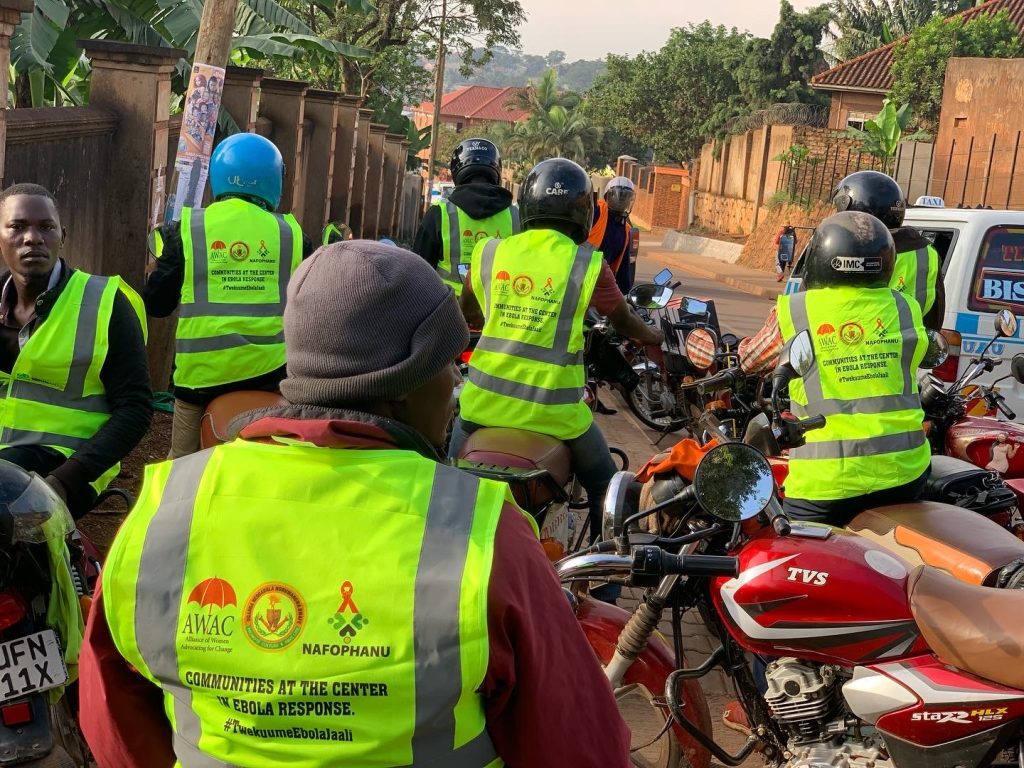Access to Services Domain of change
This aims at scaling up access to integrated gender-based violence, mental health wellbeing & economic empowerment into HIV/TB programming across the country. It also focuses on building the capacity of grass root rural and peri-urban based female sex workers in the acceleration of the Sustainable Development Goal (SDG); addressing stigma, discrimination & challenging criminalization of all forms using the Community Led Monitoring(CLM) and Score Card (SC) Model; providing and championing access to integrated quality HIV/SRHR/TB/Gender Based Violence (GBV)/Mental health and harm reduction interventions services
Including access to preventive biomedical innovations; advocacy for gender equality and equity and campaigns; conducting operational research and documentation; capacity building in feminist transactional leadership, mentorship and grassroot advocacy movement building to strengthen grassroot community structures; social economic empowerment (SEE) to diversify female sex workers and those with intersecting vulnerabilities’ income through her innovative models.
Over the years AWAC has contributed to increased coverage, access and uptake of health social and economic services to over 28000 grass root sex workers through strengthening linkages and referral, supporting social mobilization, collective grass root organizing and advocacy establishment of Drop in centres and safe spaces. In a bid to accelerate the quest for HIV epidemic control.
AWAC with support from partners in the HIV program domain has established innovative sex workers’ friendly community systems and structures (Models) and strengthened their capacity to mobilize their peers, undertake case identification, referral and linkage to the needed health and related services. The partners include TASO through MNL, Baylor Ug, IDI, Mild May Ug, RHSP, MJAP, AVAC, ICWEA, UGANET, HRAPF, CEHURD. UNFPA, UNAIDS, UNDP and UN Women. AWAC achieves the impact of this model through;
- The Drop-in Centre Model: This is a responsive friendly services facility located in the community where female sex workers drop by to relax, share personal stories/experiences access basic health information including PrEP, PEP, Family Planning, and commodities such as HTS, SRH services, condoms, lubricants and ART. This serves over 5000 Female sex workers on annual basis with a integrated SRHR services, mental health, and economic empowement to enhance social economic resilience.
- Girls Action Clubs (GACs) are tailored safe spaces where adolescents and young adults engaging in sex work and living in high burden areas such as slums, landing sites, transit routes and border areas commune to share challenges, opportunities and positive behaviour change practices to reduce health and socio-economic risks and vulnerabilities. In the GACs safe spaces, adolescents and young adults engaging in sex work are able to expand their range of choices through socio-economic empowerment schemes including life skills, business start-up, life and entrepreneurship, talent development, innovation and creative arts, apprenticeship, leadership and advocacy movement building initiative and human rights trainings. These spaces also provide them with peer led psychosocial support and counselling services. They also support case finding, and facilitate linkages, adherence, a retention in care. Currently AWAC has established 2 GACs for PrEP which have a total of 50 members and one GAC+ for adolescents and young adults living with HIV on ART with 27 members in Wakiso; 3 GAC PrEP groups in Kampala and 1 GAC+ Kampala with 27 members. (overall 102 GAC members in Kampala. Through these models, at least 248 children have been reached with psycho-social support and services; 1,200 adolescent girls engaging in sex work have been reached for HIV prevention, SRHR, care and treatment services; 50% of 56 adolescents and young who were experiencing common mental health disorders (depression, Anxiety, PTSD) have been supported accordingly and the rest referred for further treatment. Nearly 89% of FSWs and adolescents and young adults engaging in sex work specifically those who received the (SBS) kits reported reduced socio-economic related distress and improved self-esteem attributed to being able to fend for themselves and their families. 32% of the small business start-up recipients reported that they had stopped engaging in risky sexual practices such as high pay for live sex, allowing free alcohol from clients and friends before a sexual transaction.
- Community De-Medicalized Accompaniment (CoDA) Model: This model empowers communities of Female sex workers to adopt self-care practices to ensure choice, bodily autonomy, dignity and quality services within their communities of residence eg self-injection contraception. In a space of two-years, the CoDA model has enabled AAWAC to support 580 Female Sex Workers to access self-care commodities, including Self injection family planning services.
- Mental health and Wellness Accelerators (MHWA) intervention /Activities Screening, assessment , management and referrals of mental health conditions; supporting with Mood management, Relationship building, Social functioning; Psychoeducation; interpersonal group therapy; trauma-informed care; play , green therapy , dialogues on mental health related stigma; advocacy on integrated mental health programming , financing enabling policy and legislation.



